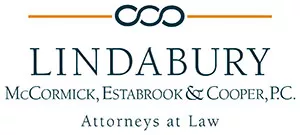On September 1, 2021, the remnants of Hurricane Ida struck New Jersey. Heavy rain and flooding ensued throughout the area, with many homes and businesses suffering significant damage as a result. Tenants of rental properties were particularly affected, as many were unaware their leased premises were located in a flood zone. Many commercial tenants suffered flood damage to their equipment, inventory, and other assets and incurred loss of business revenue but carried no flood insurance because they were unaware of its availability. This unfortunate circumstance raises questions about a commercial landlord's obligation to inform its tenants about the flood zone status of their leased premises and its potential liability for failing to do so.
Many commercial landlords are unaware that New Jersey's Truth in Renting Act ("TRA"), which is more commonly associated with residential tenancies, specifically addresses a commercial landlord's obligation to advise tenants of the flood zone status of their leased premises. While the term "landlord" in the TRA is generally defined as one who leases "dwelling units," see N.J.S.A 46:8-44(a), the "Tenant Notification of Flood Zone Location" provision, which requires landlords to notify tenants when a property is located in a flood area, expressly references lessors of commercial space. N.J.S.A. 46:8-50.
Many commercial landlords believe that the requirements under the TRA apply solely to residential leases. Yet, legislative history suggests the drafters of the TRA considered the damage caused by storms such as Hurricane Ida when determining flood zone notice requirements. The New Jersey Senate's Community and Urban Affairs Committee reported favorably on the bill for the Truth in Rending Act, stating that "during the heavy flooding which occurred during the fall of 1999, many tenants discovered that the apartments or businesses which they rented were located in flood zones." Notice to tenants was important because "had they been apprised of this information earlier, these tenants may have determined to purchase flood insurance, or to rent elsewhere." Therefore, the plain language of N.J.S.A. 46:8-50 makes it clear that the flood zone notice provision of the TRA applies to commercial spaces, notwithstanding that the rest of the Act is limited to residential leased premises.
One reason why the TRA is an important consideration for commercial landlords is the nature of the remedies available under the statute. The TRA provides that "any landlord who violates any provision of this act, contrary to the legal rights of tenants, shall be liable to a penalty of not more than $100.00 for each offense." While this monetary penalty is modest, the TRA also provides that if a lease violates the TRA, then a tenant "shall have the right to petition a court . . . to terminate a lease containing any such provision." At least one unpublished opinion confirmed that lease termination is an available remedy for a landlord's failure to provide notice of being in a flood zone. If a commercial landlord does not affirmatively advise a tenant that a property is in a flood zone, that tenant may have a basis to terminate the lease even when no such termination right was otherwise negotiated between the landlord and tenant.
In light of the TRA, commercial landlords should strongly consider including a notice within the body of the Lease if the leased premises are located within a flood zone.
The content of this article is intended to provide a general guide to the subject matter. Specialist advice should be sought about your specific circumstances.



